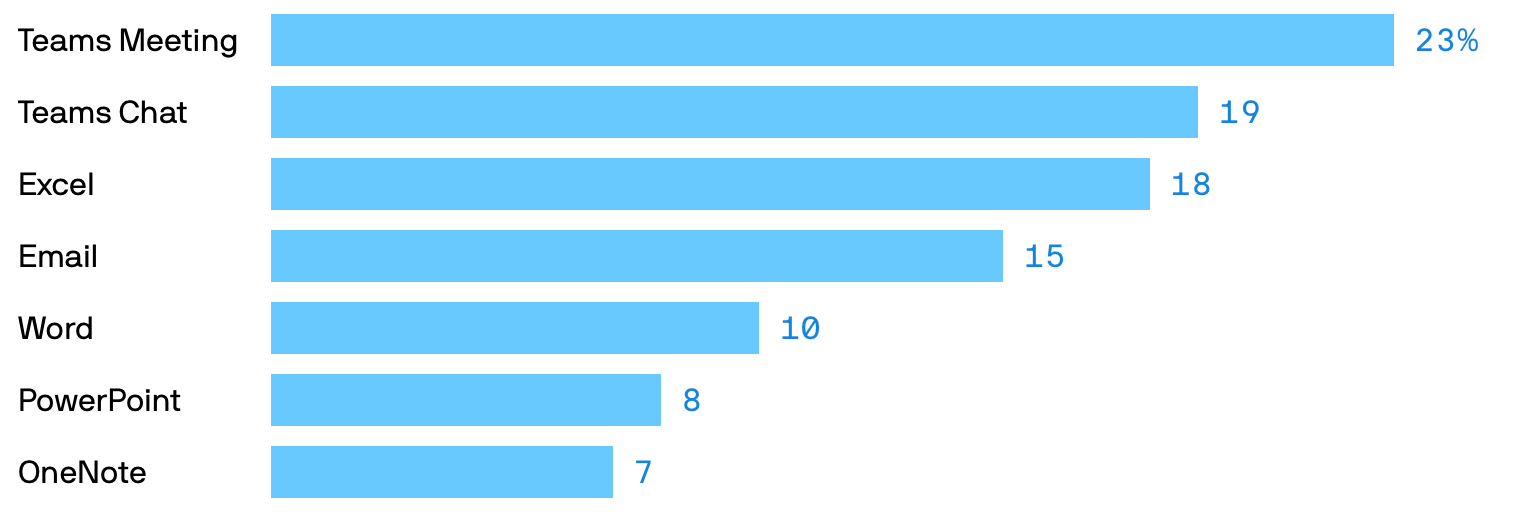It's the end of the day, and as you reflect on the hours spent at work, you're left wondering: what did I actually accomplish? Chances are, the answer is not much. An influx of business meetings and constant notifications from our myriad of technology platforms seem to suck our time and energy dry, leaving us little opportunity to get any "real" work done. This is the paradox of our modern, technologically connected era: the very tools that are supposed to enhance productivity often end up undermining it.
Microsoft's recent study indicates that employees spend 57% of their work time on communication activities like meetings, emails, and chats. Further, 68% of workers report that they lack adequate uninterrupted focus time, while 64% struggle to find the time and energy to fulfill their job responsibilities. Our workplace productivity crisis isn't just a feeling; the data corroborates it.

Our work lives have changed dramatically in the past few years, mostly due to the proliferation of technology. Our laptops, smartphones, and numerous applications have made us constantly available, erasing the boundaries between work and personal life. Moreover, the number of applications required to perform a single task or process can be overwhelming. According to Gartner, workers use between six to eight apps for a single business process.
The frequent switching between these platforms – dubbed 'app-toggling' – not only decreases productivity, but also increases mental and emotional strain. We're effectively working multiple jobs at once, taxing our cognitive energy and inducing fatigue. The irony is that these technologies, which were supposed to liberate us, have instead enslaved us in a cycle of perpetual busyness.
Companies, too, are paying a hefty price for this illusion of productivity. Unnecessary meetings, for instance, can cost large firms up to $100 million annually. Realising the detrimental impact of meetings on productivity, companies like Shopify and Meta have instituted meeting-free days and deployed tools like meeting cost calculators to quantify the financial impact of each meeting.
So, what's the solution? A starting point is to recognise the importance of uninterrupted focus time. Deep work, as Cal Newport calls it, requires extended periods of concentration, which is impossible when one is constantly interrupted by notifications or summoned to meetings. Employers must allow their employees the freedom to control their work schedules to some extent, providing them with blocks of time to focus on complex tasks.
Also, we must reconsider our over-reliance on technology. While it offers many benefits, we need to be mindful of its costs. Rather than mindlessly adopting every new application, we should be selective, choosing only those that genuinely enhance productivity and efficiency.
Currently, busyness is seen as a badge of honor. However, being constantly occupied doesn't equate to being productive. We need to shift our focus from the number of hours worked or meetings attended to the actual output produced.
Despite the onslaught of digital communication tools, nothing can replace the value of face-to-face interactions. Productive meetings can lead to the exchange of ideas, problem-solving, and relationship-building.
So please stop mistaking busyness for productivity. Only then can we create a work culture that respects our time, prioritises our mental health, and truly enhances productivity. As we look towards the future, we must not let the lure of technology and meetings hinder our ability to get actual work done.



